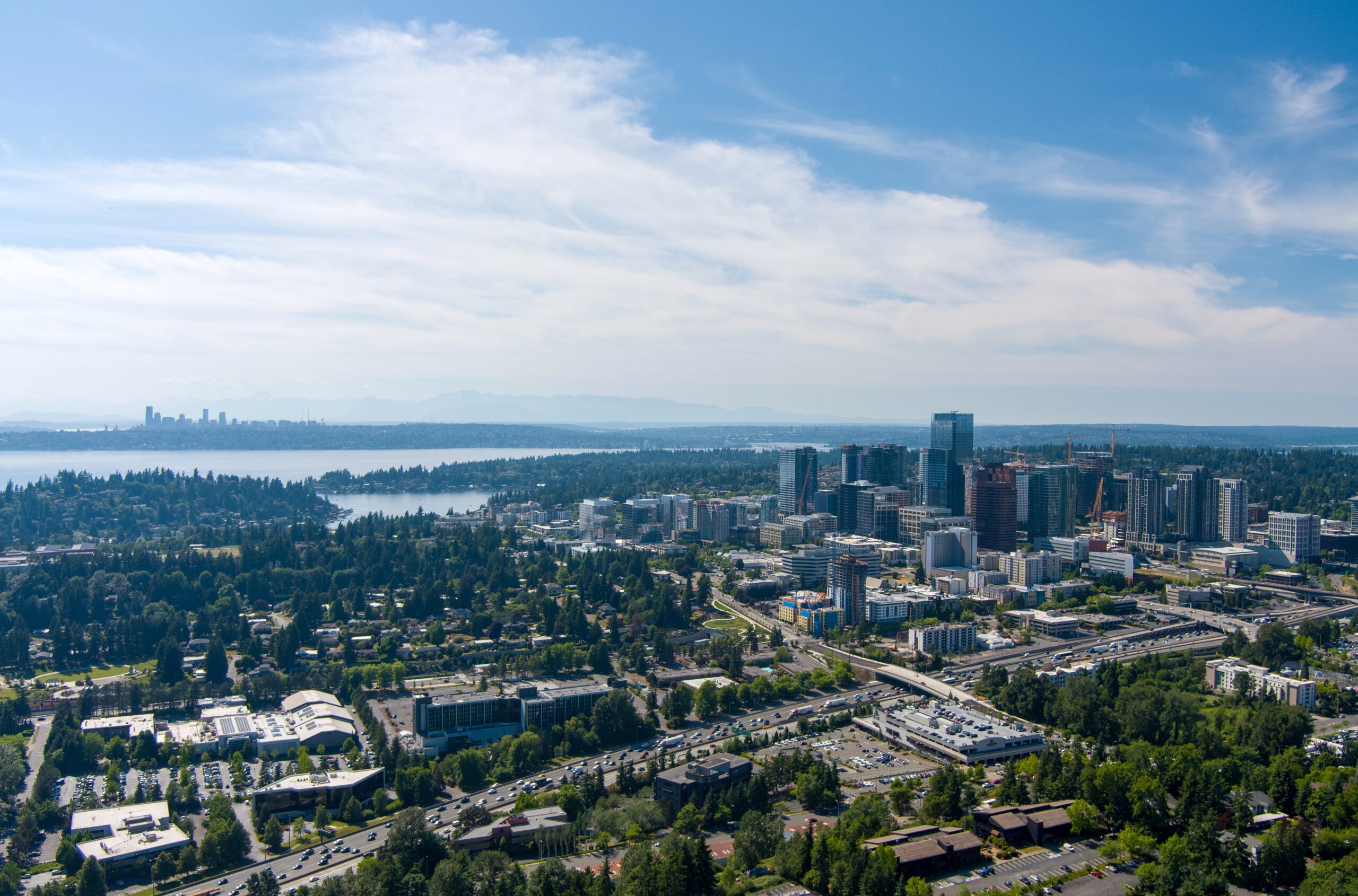Like many cities in Washington, Bellevue is grappling with high demand for housing. Across the state, sky-high home prices are contributing to higher costs of living. According to the City of Bellevue, the city must plan for 35,000 more homes over the next 20 years, and that number will continue to climb. In the coming weeks, Bellevue has chance to do something about it.
In the midst of this statewide housing crisis is an opportunity for the city to support healthy, vibrant communities by enacting balanced tree policies. City tree policies have long been used by opponents of new housing to delay, downsize and prevent new homes from being built. Overly rigid policies can even strip homeowners of the ability to maintain their land or alter their homes, and they further constrain cities from bringing new housing choices to market, including affordable homes.
The City of Bellevue is in the beginning stages of updating their policies that govern how trees are protected and when and how they are replaced. With a balanced policy, Bellevue can promote walkable communities with more housing choices while growing the city’s tree canopy.
As the City simultaneously works to update its comprehensive plan—guiding growth for the next 20 years—and address climate change, a balanced tree policy is even more critical. Having the right policies in place will help to meet the City’s most pressing housing needs, using existing infrastructure like roads, water, and sewer services, while protecting our green open spaces. This thoughtful approach to planning supports a healthy environment and has the added benefits of reducing pressure on our region’s agricultural and resource lands.
To be successful at encouraging more trees and more homes, tree policies should include predictability and flexibility for homeowners and homebuilders. These policies should also enable more housing choices for community members looking for a home. When the rules that govern when and where a tree can be removed are vague or inconsistently applied, construction delays mount and the costs of building or buying a home can become prohibitive. Alternatively, policies that are clear and uniformly interpreted help remodels move forward smoothly and homes get built faster with fewer costly redesigns or delays.
Tree replacement-friendly policies – those that allow homeowners to remove and replace a tree on their property – grant a degree of flexibility that is critical to this discussion. Replacing trees at the end of their natural lifespan with new native trees, and the ability to match the right kind of tree in the best location, will help grow our canopy to better withstand the effects of our warming climate.
Bellevue can be a model for other cities in the region, demonstrating how to add more housing without sacrificing our tree canopy and property rights. It is a city filled with thriving neighborhoods and businesses, a leader in technology and one of the most diverse places in the state. In short, Bellevue is a place of unrivaled opportunity.
Balanced tree policies are just one of the tools at our disposal, but it’s a tool that can have a significant effect if we get it right while the cost of getting it wrong is too high. Restrictive tree policies that create hurdles to adding much-needed housing ignore our region’s needs and will mean fewer options for our children and grandchildren. It means fewer opportunities for young people and new families trying to get their start, or for retirees who want to downsize but not relocate. It also limits the ability to add on to a home, for example, that provides opportunities for multigenerational living. By working thoughtfully together in getting our tree policies right, we can give future generations a better shot at raising their families here and more opportunities for people to live closer to where they work.
Homeowners can take action by contacting Bellevue City Council Members and advocating for an updated tree policy that will facilitate more housing choices, so more community members can call the great city of Bellevue home.
Balanced tree policies will help protect the natural beauty of our city, create more housing pathways for its residents and promote a more resilient environment that can last for generations. We don’t have to choose between housing and trees – we can have both.

